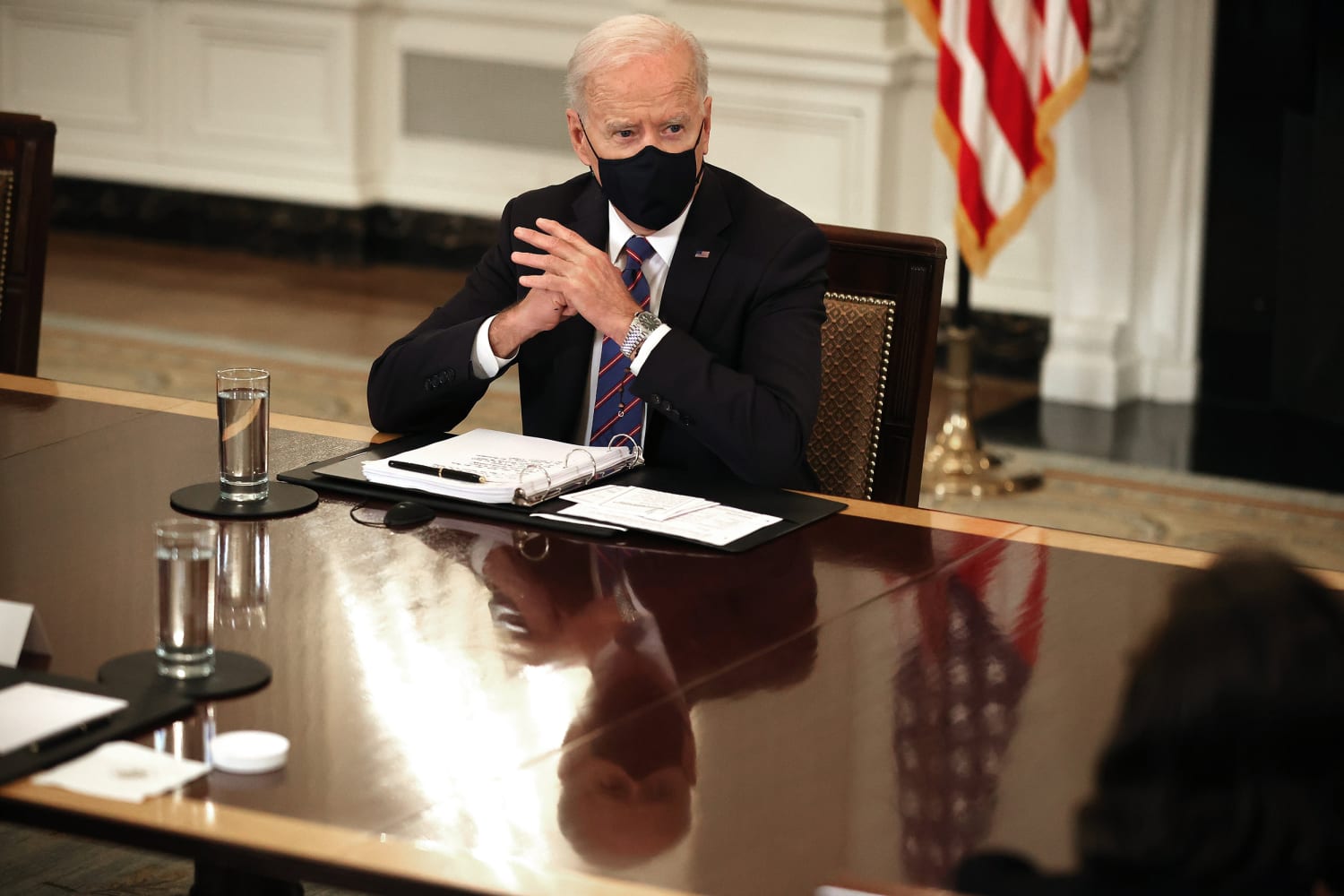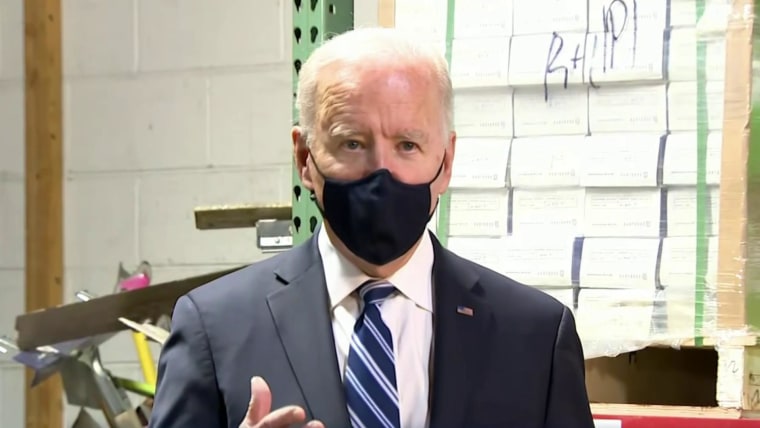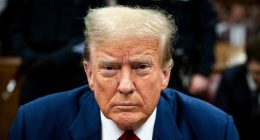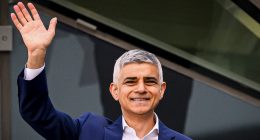WASHINGTON — President Joe Biden will meet the press Thursday at a transition point in the early weeks of his administration.
He is certain to tout the benefits of his $1.9 trillion Covid-19 relief package during his first formal White House news conference. He is likely to pivot from that to pushing a massive infrastructure and climate change measure. And he won’t be able to avoid tough questions about his administration’s handling of migrants at the U.S.-Mexico border and whether he will use executive powers to address mass shootings.
“It’s a good press conference if you are able to drive your core message rather than going down the rabbit hole of news you didn’t want to make,” said Ben LaBolt, who was a White House press aide for President Barack Obama.
The big risk for Biden is that he could inadvertently knock his hyper-disciplined White House messaging machine off-kilter. But for a president who promised transparency, honesty and competence in government, an exchange with a full spectrum of television and print media offers the opportunity to draw a contrast with the frequent, freewheeling and often full-of-falsehoods interactions President Donald Trump had with reporters.
His main audience is the public — White House aides will surely clip his highlights and distribute them on social media — but it will be the first time since he took office that Americans will see him tested by media intermediaries. In that way, it is Biden’s most important shot to demonstrate that he will deal with scrutiny in a manner different from his predecessor’s and with more honest openness.
“Because of the nature of the relationship between the last administration and the U.S. media, it’s critically important for President Biden to set the tone and structure for how he will address media representatives,” said Tia Tyree, a professor and interim dean at Howard University’s Cathy Hughes School of Communications.
“His first press conference will help reporters to not only see how he and his representatives will present information, provide updates and share accomplishments, but handle media questions,” Tyree said. “This simple but necessary exchange is what will help redevelop the trust lost in the last administration.”
Trump was more accessible to the media than any other modern president, but proximity didn’t breed comity during his four years in office. He often spoke with reporters in informal sessions on the White House’s South Lawn, and he gave near-daily formal media briefings at the White House during the early stages of the coronavirus pandemic.
The affairs were often acrimonious, in part because of Trump’s affinity for prevarication and in part because maligning the media was a central element of a political strategy that cast him as the leader of a battle against the country’s institutions.
As a candidate, Biden went months without giving a news conference when Trump was disseminating false information about the fight against the coronavirus. In the first two months of his presidency, he has sat for one-on-one interviews and occasionally had brief, informal encounters with the media.
Thursday’s news conference will be his first extensive grilling from a wide variety of news outlets at once since he was sworn in. Biden is accustomed to the format. During eight years as vice president, he spoke to reporters often, both in front of cameras and off the record, and he served 36 years in the Senate, where lawmakers are constantly available to reporters.
White House press secretary Jen Psaki did not respond to a request for comment about Biden’s preparations. LaBolt said there’s a pretty standard operating procedure to get a president ready to spar with the media. The process includes the president’s studying a briefing book to make sure he is up to speed on the questions likely to come his way and either parrying queries from staff members posing as journalists or simply working through possible answers in a less formal bull session.
Tony Fratto, a deputy White House press secretary for President George W. Bush, said the first 10 questions or so should be predictable. Biden and his aides know he will be asked about the conditions for migrant children in temporary detention facilities, his broader approach to cutting through the Gordian knot of immigration policy, his plans for an infrastructure bill and delays in producing vaccines for Covid-19.
“The problems usually come with the last three or four questions — the really unpredictable questions from reporters in the back rows, after all the necessary but obvious news-of-the-day questions have been asked and answered,” Fratto said in an email. “It’s those questions that usually end up with the president sitting down for beer summits!”
Fifty minutes into a prime-time news conference on July 22, 2009, Lynn Sweet of the Chicago Sun-Times asked Obama about the case of Henry Louis Gates Jr., a Black Harvard professor who was arrested by a white police officer after he broke into his own locked home. Obama’s answer included a formulation that “the Cambridge police acted stupidly,” which triggered a backlash. The White House quickly set up a “beer summit” attended by Obama, Biden, Gates and the officer.
If nothing else, Biden seems likely to avoid the beer summit pitfall: He doesn’t drink.
For White House officials who are still getting Biden ready, the main tension point is between a president who is trying to stay on message and a news contingent determined to push him beyond his talking points.
“The important thing is to align on the message that you want to drive at the press conference and get back to that home base as often as you can,” LaBolt said.
Source: | This article originally belongs to Nbcnews.com











